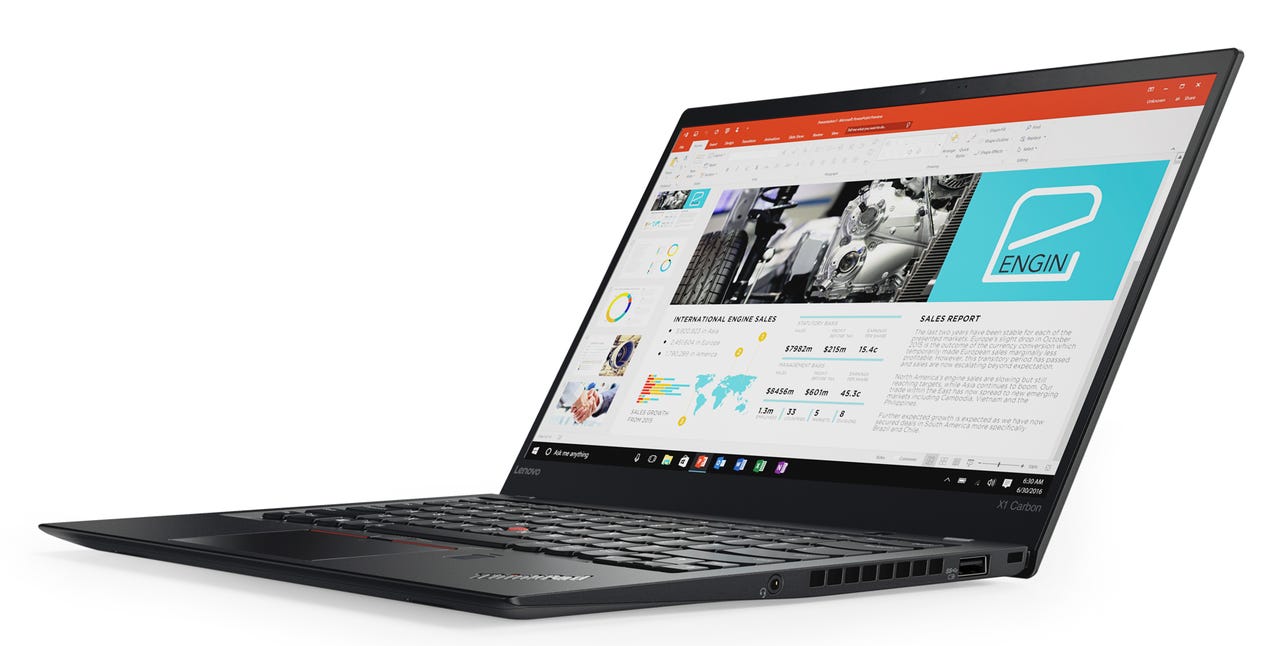Lenovo's new PC manufacturing process promises 35 percent reduction in carbon emissions


Lenovo's latest version of its X1 Carbon laptop is one of the first PCs built with the company's new environmentally friendly Low Temperature Solder process.
Featured
Lenovo has announced that it's devised a new manufacturing process that will save up to 35 percent on carbon emissions while increasing reliability on PC's built using the new methods.
The company calls its innovation the Low Temperature Solder (LTS) process. The conventional soldering paste required to produce circuit boards needs to be heated to about 250 degrees Celsius, but Lenovo has developed a new mixture of paste materials that only needs to be heated to 180 degrees Celsius.
The reduction in temperature that the LTS process requires means that the ovens Lenovo uses to bake its circuit boards will demand less energy, which the company says will save an annual 5,956 metric tons of CO2 by the end of 2018. Better still, Lenovo says that the new process actually improves reliability, as the LTS method leads to less warping of circuit boards and fewer bad parts.
Perhaps best of all, Lenovo says that the LTS process does not add to production costs, as it requires no new materials or ovens. That means that systems built using the process, such as the company's new ThinkPad E and fifth-generation X1 Carbon laptops, won't require price hikes as they reap the environments of being built more reliably and more environmentally friendly,
Lenovo says it plans to share the new LTS process across the PC industry for free, which means other companies could also adapt the method and compound the reduction in carbon emissions.